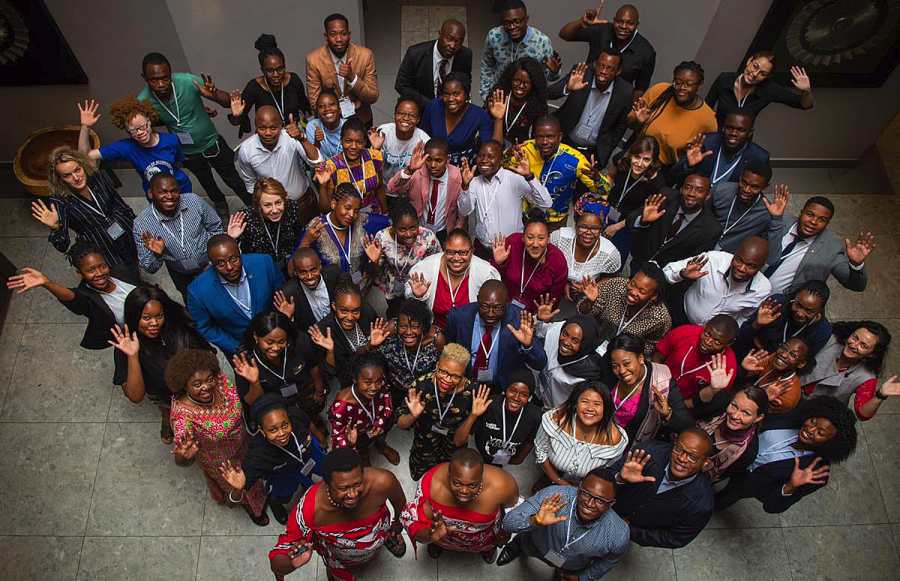On 12 August 2020, the world united in its commemoration of International Youth Day. This year’s theme, Youth Engagement for Global Action, highlights how the engagement of young people enriches national and multilateral institutions and processes. It also draws attention to how their representation and engagement in formal institutional politics can be significantly enhanced.
2020 has been marked by the COVID-19 pandemic, which aggravates many of the challenges faced by young people in Africa, including lack of access to integrated HIV, sexual and reproductive health and rights (SRHR) and gender-based violence (GBV) information, services and commodities, loss of livelihoods and education opportunities.
It is against this background that UNAIDS Regional Support Team for Eastern and Southern Africa, in partnership with the SADC Parliamentary Forum (SADC-PF), UNFPA, UNESCO, Restless Development, AfriYAN and the African Population and Health Research Centre, have joined forces in convening a series of online engagements with Speakers of National Parliaments, parliamentarians and young people in all their diversity.
Now more than ever, decision-makers, including parliamentarians, need to be informed about the specific needs of young people to take adequate measures into response and recovery plans.
“We must infuse urgency into implementation when we have heard from young people, so that we accelerate our responsiveness to their conditions”, said the Deputy Speaker of the National Assembly of South Africa, Solomon Lechesa Tsenoli, in his remarks during the webinar convened on 12 August 2020 in commemoration of International Youth Day.
The webinar series seeks to advance the commitments set out in the ground-breaking Tshwane Declaration, adopted by SADC-PF Assembly in December 2019, building on the outcomes of a regional Youth Indaba that same year. The Tshwane Declaration focuses on the domestication, harmonization and implementation of laws and policies concerning young people’s SRHR.
“My belief is that if we work very hard as a country, in a time not very far away from us, we should have recognized different definitions of children’s laws in this country”, said the Deputy Speaker of the National Assembly of Botswana, Mabuse Mopati Pule, about providing a clear age of consent to health care services in legislative provisions for the benefit of adolescents and service providers.
The engagements provide a unique platform for young people to share experiences, ideas, and possible solutions with decision-makers with the goal to strengthen young people’s ability to exercise accountability, while advocating for the fulfilment of their right to health and education.
“We do often say, nothing about us, without us. As young leaders we need to carry this statement as we seek political spaces and voice the needs of our fellow young people,” said Hussein Melele, Vice-President of AfriYAN Eastern and Southern Africa.
“The youth can influence incremental change and the interface between youth and parliaments can bring enhancement towards social transformation in the field of SRHR. The relevance of youth in relation to implementation of SRHR cannot be overemphasized, given that it is the youth that are primarily affected by issues such as lack of contraception and safe abortion”, said the Secretary General of the SADC Parliamentary Forum, Boemo Sekgoma, in her introductory remarks.
